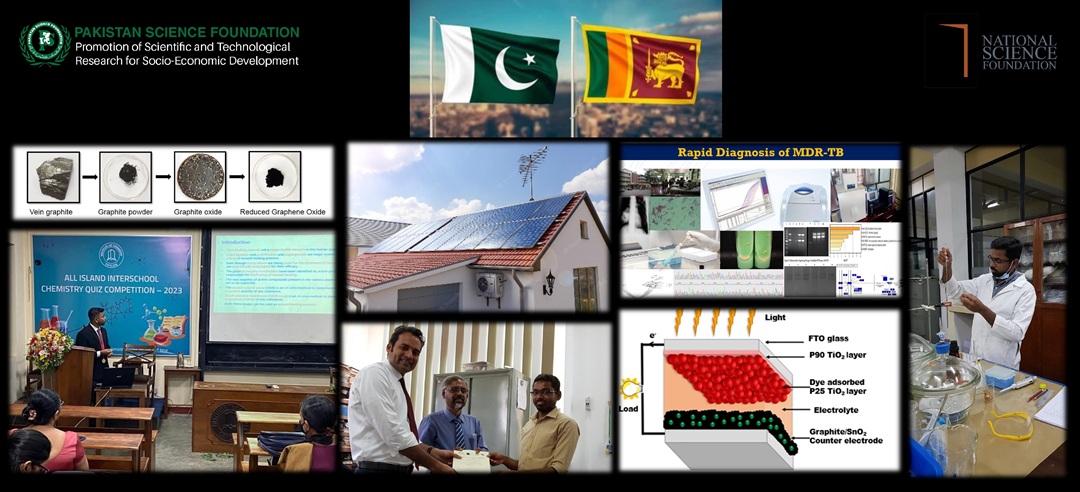
In a landmark initiative to foster bilateral scientific collaboration, the National Science Foundation (NSF) of Sri Lanka and the Pakistan Science Foundation (PSF) launched their first joint research call in February 2017. This visionary programme aimed to strengthen ties between the two nations through cutting-edge research in health and material sciences.
Out of 78 applications received, six innovative projects were awarded funding. These projects not only addressed pressing scientific challenges but also laid the foundation for long-term collaboration and innovation.
Breakthroughs in Material Science:
- Researchers from the University of Jaffna and University of the Punjab developed novel materials for sodium-ion batteries and fuel cells, contributing to sustainable energy solutions.
- Teams from University of Kelaniya and University of Karachi optimized donor-acceptor materials for efficient solar cells, advancing clean energy technologies.
- The University of Peradeniya and NUST Pakistan collaborated on graphene-based materials for lithium-ion batteries and solar cells, pushing the boundaries of nanotechnology.
- The National Institute of Fundamental Studies (NIFS) and University of Agriculture, Faisalabad innovated carbon-based nanomaterials for dye-sensitized solar cells, offering low-cost alternatives for energy harvesting.
Transformative Health Research:
- A joint effort between NIFS, Teaching Hospital Kandy, and National University of Medical Sciences Rawalpindi led to the genetic characterization of drug-resistant tuberculosis strains, paving the way for improved diagnostics and treatment.
- The Open University of Sri Lanka and COMSATS Institute of Information Technology Pakistan developed cost-effective synthetic skin grafts using plant extracts, revolutionizing wound care and burn treatment.
The NSF-PSF Joint Research Programme yielded substantial outcomes across multiple dimensions. The programme supported the academic advancement of eight Sri Lankan postgraduate researchers, including two PhDs, five MPhils, and one MSc candidates, contributing to the development of skilled scientific personnel. A total of 20 indexed journal articles and 37 scientific communications were produced, reflecting the high level of scholarly output and the dissemination of new knowledge generated through the collaborative projects. The acquisition of five essential laboratory instruments enhanced the research capabilities of participating institutions. Additionally, the programme enhanced international exposure by facilitating three overseas training programs and three collaborative visits, strengthening global scientific engagement.
This joint call stands as a model of international scientific synergy, demonstrating how shared goals and collaborative spirit can lead to impactful discoveries and societal benefits. The NSF-PSF partnership has not only advanced science but also built bridges of trust and cooperation between Sri Lanka and Pakistan.

